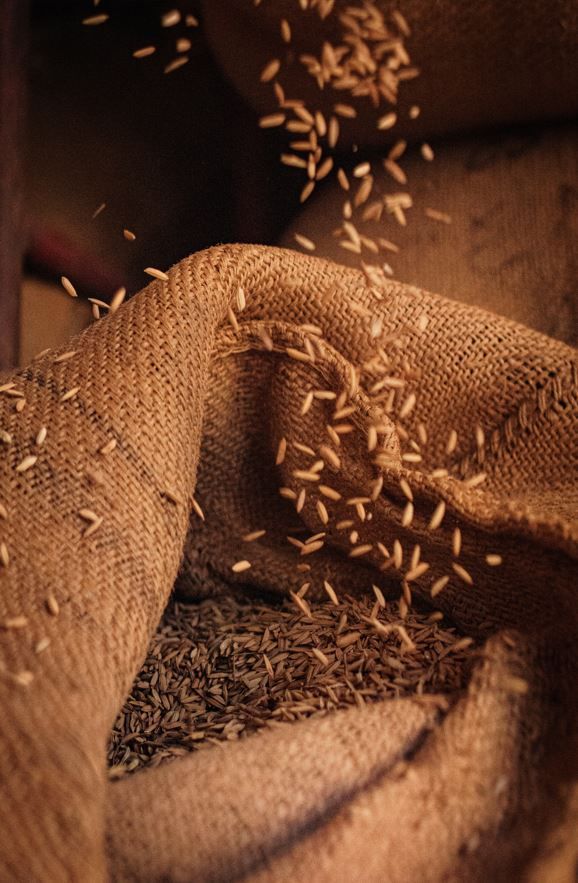“Whoever has ears to hear”

Luke 8:5-8
“A farmer went out to sow his seed. As he was scattering the seed, some fell along the path; it was trampled on, and the birds ate it up. Some fell on rocky ground, and when it came up, the plants withered because they had no moisture. Other seed fell among thorns, which grew up with it and choked the plants. Still other seed fell on good soil. It came up and yielded a crop, a hundred times more than was sown.” When he said this, he called out, “Whoever has ears to hear, let them hear.”
Jewish life in Palestine during the time of Jesus was extremely hard. The Jewish people were a conquered nation oppressed by the mighty Roman empire, rulers over the entire known world.
There were only two classes of people in Palestine, the peasant working class and a tiny upper class, who lorded it over them. This elite class consisted of Herod, the Roman prefects, the temple High Priest, and Sadducees. Together they controlled the peasant majority using the might of the Roman army to oppress any thoughts of insurrection.
Agrarian Economy
The economy was primarily agricultural with the peasants trying to grow enough food to feed themselves and see them through until the following harvest. They would also produce items of basic necessity such as clothes, tools, and utensils. Conversely the elite, through extortionate taxes, would extract any surplus the people had made, at rates ranging between 30 and 70 percent. This left the people with not enough to get by on. So, to try and survive through the winter, they would stash enough food away for themselves in secret storage pits they had dug in the floors of their homes so that the hated tax collectors couldn’t take it from them.
To add insult to injury, the elite ruling class would use ordinary Jewish people to collect these taxes. People like Matthew and Zacchaeus who we are told were employed as Tax collectors. Ordinary everyday Jews who lived among the people, and as neighbours, they knew exactly everyone's everyday business!
These tax collectors would not only collect money but also commodities such as olive oil, fish, wheat, etc. They took a percentage of their harvest, so it’s no wonder the people hated them so much. It’s hard to love when you’re hungry; especially someone has just taken the food from your mouth and your children’s mouths!
So, as I reflect on this parable and by placing it in the context of the economic environment that existed, it occurs to me that a lot of the people who were listening to Jesus tell this parable could have thought that he was really saying:
My harvest was very poor this year Mr Tax collector,
Some of my seeds fell on the path, it got trampled and the birds ate it,
Some fell on rocky ground and it got sun-scorched and died,
Some fell on thorny ground and the weeds choked them,
But the small bit of seed that fell on the good ground did produce a good yield,
But overall, my crop was a disaster, so I can’t pay you much tax,,,,

“Whoever has ears to hear, let them hear”
Considering Jesus concluded with these words, the parable's meaning is unclear. Even the disciples didn’t understand what Jesus meant. Thankfully he then explained it to them and us.
Jesus explained that the seed is the word of God, and the different soil types are similar to the conditions of the human heart and how receptive it is to receiving God’s word.
Thankfully as all gardeners and farmers know, with a bit of hard work, all soil types can be improved by some deep digging and hard work. Likewise, all human hearts that are hard can be softened with the application of grace, compassion, and the work of the Holy Spirit. Through this work, damaged hearts can be restored and made receptive and fertile to God’s word. It is God who really does the work, our part is simply to lend a hand in the field that God gives us. So, start digging out the rocks, stones, and briers, add the enrichment of the love of Christ and sow the seeds of the Gospel and get ready for a harvest of plenty to gather in.
Have a great day, and God bless,
Trev.
PS: One final thought, erect that scarecrow, that image of a man on a cross that constantly says "no crows welcome here".
